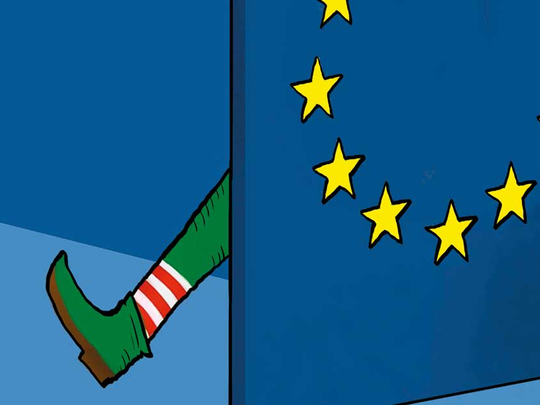
By setting out its plan for avoiding a “hard border” between the Republic and Northern Ireland, the UK Government has emphasised once again the strength of the UK and Ireland’s common interests. The new Irish Taoiseach, Leo Varadkar, had already laid down the maintenance of the present invisible border as a red line in any EU/UK deal. The aversion to a physical border is now shared by the British Government and its allies in the Democratic Unionist Party (DUP).
In short, all in Ireland are fully aware of the dangers to peace and the economic damage that a return of a border would represent. This view does not seem to be shared in Brussels, however. EU negotiator Michel Barnier has said that there can be no “frictionless trade” after Brexit. Here, Ireland’s interest is much closer to that of London than of the remaining 26 EU countries.
And this is also true in many other areas. My country wants to see trade talks start as soon as possible, for example. The roadblock the EU has placed in the way, in the form of an enormous exit bill, is completely contrary to Irish interests. The easy assumption is that Ireland will grit its teeth and stay in line with the rest of the EU, but that cannot be taken as a given. There is an alternative path for Ireland: it could leave the European Union, too. It’s worth remembering how many long-standing links are endangered by a failure to reach an amicable deal.
Ireland is dependent on the UK for its energy supplies, for instance. Many professional bodies and cultural organisations operate throughout the British Isles. These ties long predate the two countries’ common EU membership and must be in doubt as Brussels seeks to have all its “citizens” treated like a single national entity. While Ireland has greatly lessened its dependence on the UK for its exports, the nature of these exports, concentrated in the small- and medium-sized enterprises and food sectors, make them disproportionately valuable, often coming from rural areas where alternative work is not readily available.
A fresh reminder
A full 80 per cent of the Republic’s exports use the UK’s transport links to travel to their final destination. The EU has been good for Ireland. But times have changed. French President Emmanuel Macron’s intention to target our low corporation tax rate is a fresh reminder that the EU is becoming a less benign place. The infamous bail-out, where Irish taxpayers were forced to take on the private debts of banks to international bondholders, many German, was a flagrant example of the EU’s disregard for the Irish national interest. Ireland is now a small net contributor to the EU, with its bill set to balloon in the next two years.
So although EU financial support was once important, these funds could be easily substituted by the national exchequer, should the need arise. The EU will create an almighty mess if it fails to take account of Ireland’s special interests in reaching a Brexit deal.
In fact, the alternative, involving Ireland leaving the EU, opting out of the EU customs regime and staying in a free trade and customs union with the UK, may well be the better approach. It would allow the Irish to stay in the European Economic Area (EEA), like Norway, and still have free access to the EU market for its products. It would be difficult for the Dublin establishment to stomach such a course of action, but it could be much more in line with Ireland’s interests. It’s also often said that Irish voters would never agree to this. But it’s worth recalling that the Republic’s electorate twice rejected EU treaties that tried to centralise power in Brussels. On both occasions, the voters were instructed to vote again until they returned the “right” result.
The UK and Ireland have grown closer as old prejudices have disappeared. The EU, on the other hand, is becoming a less hospitable home. It is time for Ireland to decide whether its long-standing policy of loyalty to the EU is so valuable that it can tolerate an EU-created physical border and the rupture of centuries-old links across the British Isles.
On balance, the logic would seem to support a soft Irish Irexit that would allow free movement of people and commerce with both the UK and the remaining members of the EU.
— The Telegraph Group Limited, London, 2017
Ray Bassett is senior fellow for EU affairs at Policy Exchange and a former Irish diplomat








